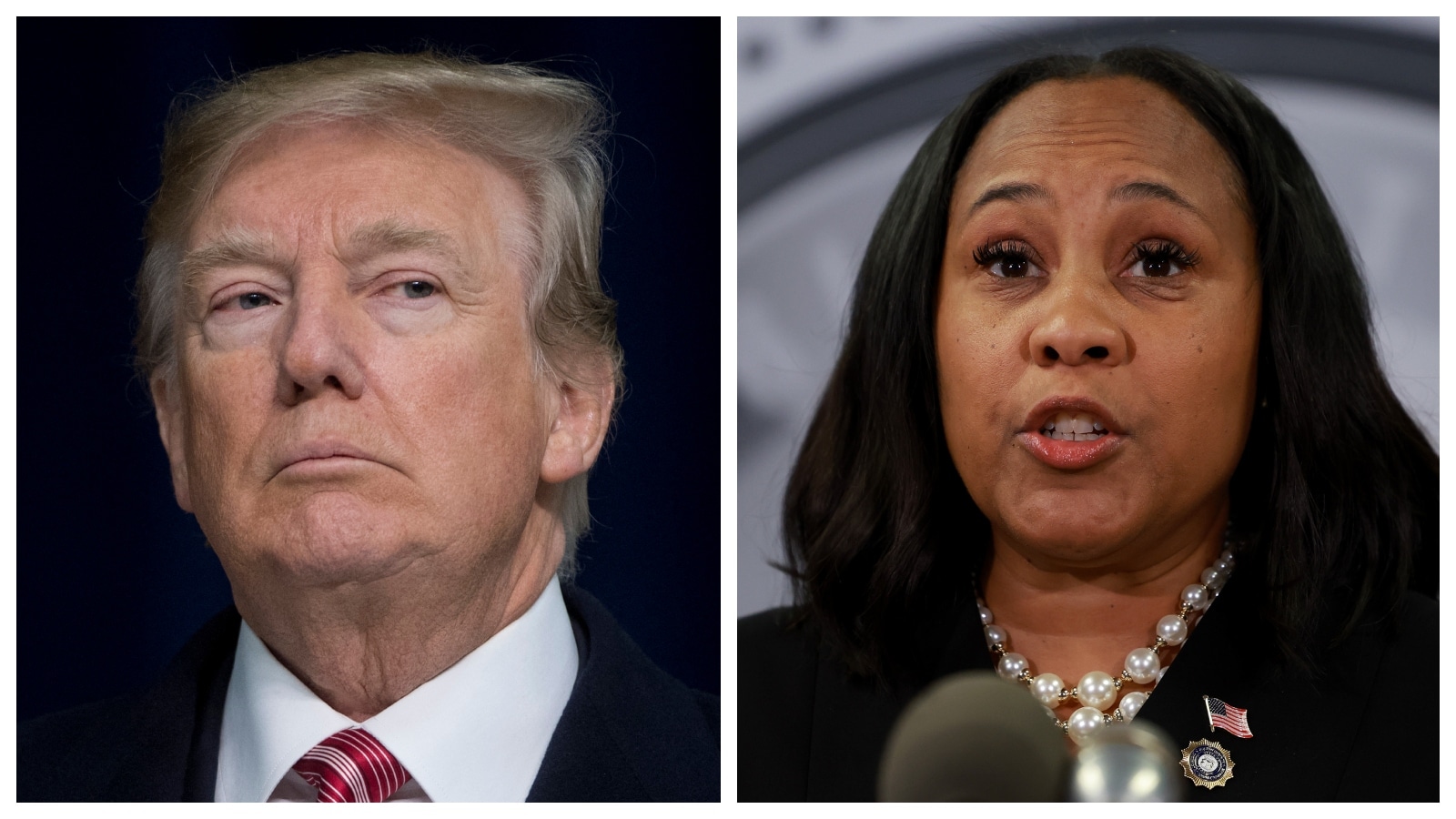OPINION: This article may contain commentary which reflects the author's opinion.
Fulton County, Georgia, District Attorney Fani Willis narrowly survived her disqualification hearing last week and will be allowed to continue on the case against former President Donald Trump — but controversy has followed her ever since.
Fulton County Superior Court Judge Scott McAfee decided not to disqualify Willis from leading the Trump case, provided that she gets rid of her romantic partner, Nathan Wade, who has since stepped away.
In light of McAfee’s criticism of Willis’s actions, legal experts now believe that her case against Trump and her own career would both benefit from her resignation. Even though the judge did not find Willis guilty of perjury or financial misconduct involving Wade, the judge did note that her actions were troubling.
In his decision from last week, McAfee hinted at an “odor of mendacity” in Willis’s testimony concerning her relationship with Wade, who resigned in response to the judge’s remarks. There are eighteen co-defendants in the case against Trump, which centers on allegations of a conspiracy to sway the 2020 presidential election.
Willis may face challenges to her law license from the State Bar of Georgia, even though the ruling permits her to pursue the case. Based on available information, experts do not believe the challenges will succeed, but Willis may encounter resistance from other state regulators.
Shortly after the decision, trial attorney and adjunct professor Andrew George of the Georgetown Law Center told USA TODAY, “She survived today; she survived this opinion, but this is not going away.”
“The scrutiny is going to only build and build because her presentation and Mr. Wade’s presentation during this process were not convincing.” George continued, “If it were proven that she lied under oath, I think that would be grounds for disbarment. However, that would probably require more proof than currently exists.”
It is unlikely that Willis will face disciplinary action from the State Bar, according to Anthony Michael Kreis, a law professor at Georgia State University.
“Whether that’s a relationship or dating or just flirting, that’s really something that’s so subjective and so beholden in the eye of the beholder, that you can’t really prove that with a kind of degree of accuracy,” he explained to USA Today.
“Unless there’s just incredibly inculpatory evidence to suggest that she received some kind of kickback, I just don’t see anything really coming out from that.”
He continued, “Judge McAfee’s opinion is written in such a way that is thorough enough and detailed enough, and the findings of fact are sufficiently in the DA’s favor here, that there is a really minuscule likelihood that this will be taken up on appeal.”
Another legal analyst has spoken out against Willis as the embattled DA faces more scrutiny over her behavior.
On Friday, legal analyst and attorney Harry Litman suggested that Willis’ prosecution of Trump is still “tainted,” even though the special prosecutor she hired, Nathan Wade, has since resigned his position and left the case.
Willis has been spearheading the investigation that resulted in a criminal indictment against Trump for his purported attempts to overturn the outcome of the 2020 election in the state.
Trump, along with numerous other co-defendants, faces charges of racketeering in the case, to which he pleaded not guilty during his arraignment hearing.
Willis and her office have faced controversy over allegations made by the legal team of co-defendant Mike Roman. They assert that Willis had an improper romantic relationship with Wade, an outside lawyer who the district attorney hired to help with the Trump investigation. Roman, who has also pleaded not guilty to all charges in the case, is at the center of these allegations, Newsweek noted.
Willis vehemently denied that her relationship with Wade influenced the merits of the case against Trump. However, following a hearing on the matter, Judge Scott McAfee ordered that to address the situation, either Willis or Wade would have to step down. Wade left the case on Friday shortly after the ruling was issued.
Writing in a Friday column for the L.A. Times, Litman, who has served as a U.S. attorney for the Western District of Pennsylvania and deputy assistant attorney general at the Department of Justice (DOJ), noted that “it would be a mistake to assume that Wade’s withdrawal puts an end to the ugliness and doubt surrounding Willis’ handling of the case” and that “prosecution revolving around an infamous Trump sound bite…is now tainted by an ‘odor of mendacity.'”
“But the order, and the circus-like atmosphere of the multiday evidentiary hearing that preceded it, in some ways served only to intensify the controversy surrounding the case and ensure that the rhetorical challenges will continue,” he wrote. “Notwithstanding the decorous and professional language of McAfee’s order, it lands several haymakers on Willis’ judgment and probity. Probably the most notorious and enduring is his assertion that ‘an odor of mendacity remain’ around the testimony of Willis and Wade, specifically as to the timing of their relationship. It’s a phrase that could have a continuing political impact in Georgia and nationally.”
He went on to say that the ruling by McAfee will serve as political ammunition for Trump and other Republicans after they lost the state to Joe Biden by a razor-thin margin in 2020.
